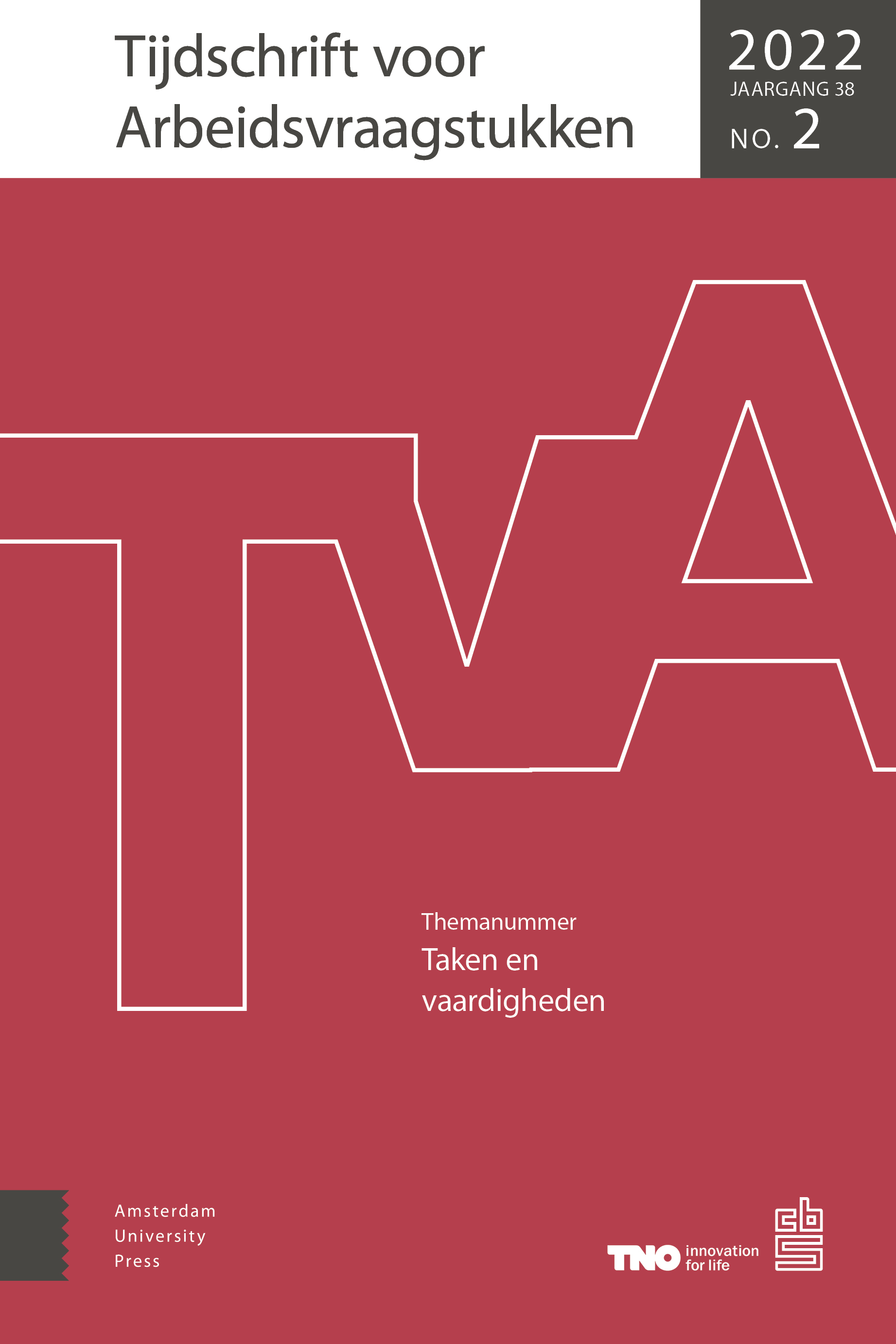-
f Van beroepen naar skills: een data science-benadering
- Amsterdam University Press
- Source: Tijdschrift voor Arbeidsvraagstukken, Volume 38, Issue 2, Jun 2022, p. 237 - 260
-
- 01 Jun 2022
Abstract
Wat zijn de gevolgen van digitalisering en automatisering op de arbeidsmarkt? Wat betekent dit voor de dynamiek in beroepen en vaardigheden? Om dit te beantwoorden maken we gebruik van een nieuwe aanpak waarbij we ongestructureerde gegevens van internet combineren met gestructureerde gegevens van arbeidsmarktprognoses. Onze resultaten op basis van een dataset van 95% van alle vacatures in Nederland 2012-2020 met 17,7 miljoen datapunten tonen aan dat digitale vaardigheden steeds belangrijker worden en dat Nederlandse beroepen steeds technischer worden, maar dat tegelijkertijd de vraag naar bepaalde categorieën van algemene vaardigheden stijgt. Deze ontwikkelingen gelden voor alle beroepen, voor verschillende soorten functies en groepen werknemers, en hebben betrekking op álle Nederlandse sectoren. Het onderzoek geeft inzicht voor welke beroepen dit in meer of mindere mate geldt en hoe hierdoor beroepen meer op elkaar gaan lijken of juist meer van elkaar verschillen. Naast het fijnmazig in kaart brengen van verschuivingen op de arbeidsmarkt kan dit onderzoek daarom informeren over kansrijke overstapmogelijkheden tussen beroepen op basis van de vaardigheden en competenties die voor een specifiek beroep vereist zijn en de mate van overeenstemming tussen beroepen. Dit kan implicaties hebben voor de mobiliteit en leiden tot een wendbaardere en toekomstbestendige Nederlandse arbeidsmarkt.


